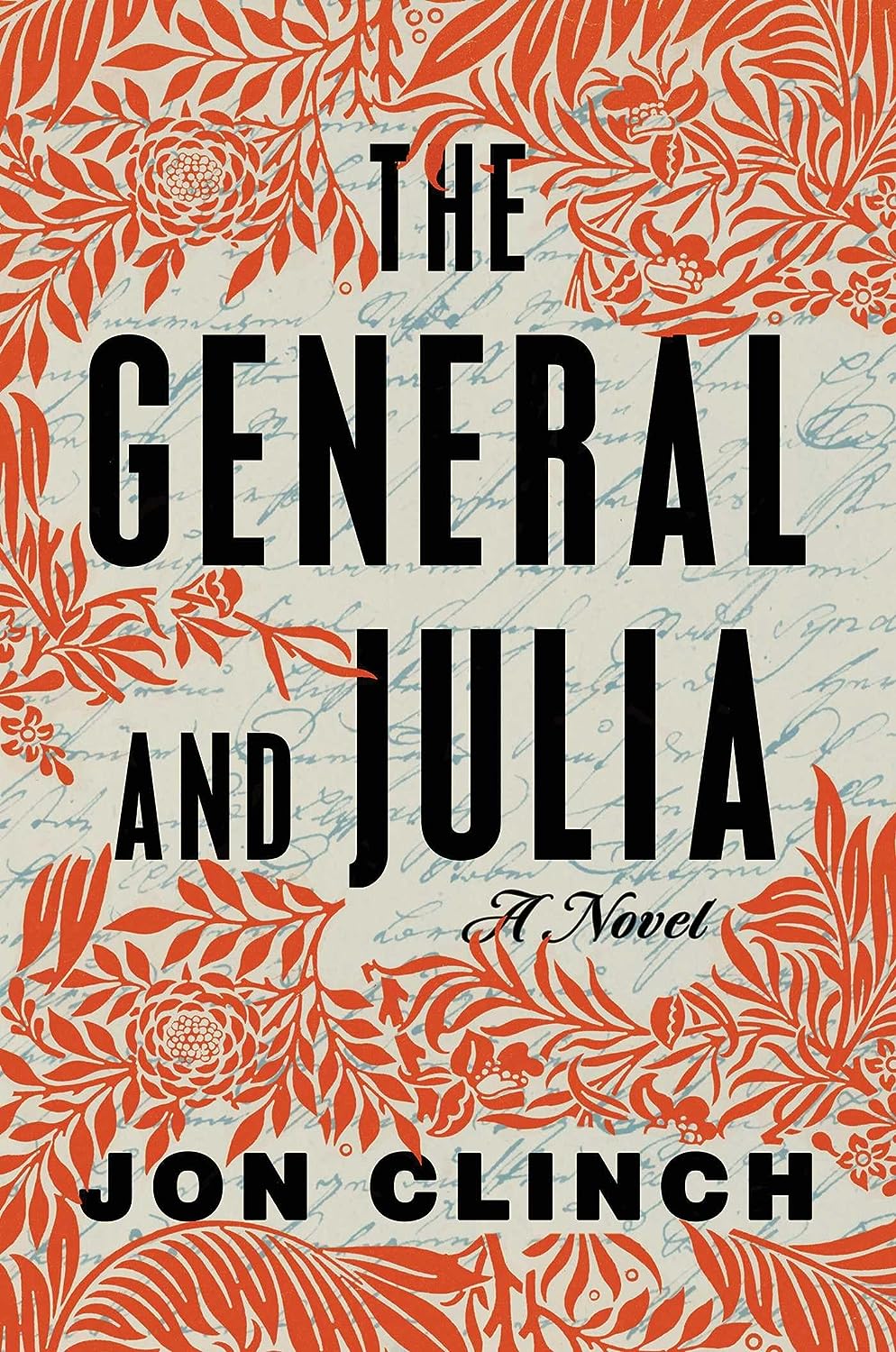Who are you?
My name is Jon Clinch, and I’m a novelist. I live and work in Vermont, a beautiful place that suits me completely. I haven’t always lived here — and I haven’t always written novels, either. I spent most of my working life writing advertising in Philadelphia, and my wife and I were able to move to the Green Mountain State when I sold my first book, Finn, in 2006.
What do you write?
My books live in the place where literary, historical, and commercial fiction meet. I suspect that my new one, The General and Julia, is the most commercially-oriented of them all, but its foundations are definitely historical and literary.
I learned about writing by doing it, one imperfect manuscript after another. I finished five or six complete novels, in fact, before I finally wrote one that deserved (and found) representation. My plan was simple: if I took an hour every day to write one single page, in a year’s time I’d have a whole book’s worth. That notion helped me persevere, and I think it’s a powerful thing to keep in mind — especially if you’re just starting out.
I count myself lucky to be able to write for a living. Every day is a fresh challenge, every sentence is a little victory. And over time, with patience and faith and consistent effort, it ends with a book.
Where do you write?
I wrote my first half-dozen novels in a basement office, but now I don’t like to sit anywhere without a view. There’s a little desk in our little library, but it faces into the wall and I can’t bear to work there. So I write at the dining room table. A dear friend built the table for us,, out of walnut and ash that grew on his family farm. It was the first dining table he ever made, and it turned out a lot better than my first novels did.
I’ve written with every word processor there is. I’ve used Word, Pages, Nisus Writer, and more. I even wrote one whole novel with BBEdit, a stripped-down text processor without any formatting whatsoever, meant for writing code. These days I use Scrivener. Its word processing functions are dead simple, and its organizational tools are extremely flexible. Manuscripts always go to publishers in Word, of course, and Scrivener exports that format readily. (“Track changes” doesn’t translate between Word and Scrivener, though, which means that my editor has to cope with my sending a brand new Word file whenever I’ve made edits. Not everyone would be that accommodating.)
I use paper only for scribbling out ideas and notes — not even for reading and editing drafts. The first printed version I saw of either Marley or The General and Julia was a finished Advance Reader Copy.

When do you write?
I write for four or five hours every day, usually in the morning. It still seems like a luxury not to be stealing an hour here or there from an office job. Writers who produce three or four or even five thousand words a day baffle me completely. I can be satisfied with three hundred. I’m thrilled to pieces with a thousand. But I put in the time either way.
Why do you write?
I write because I love it, and because it’s the thing I do best. I’ve worked at it seriously and without letup for twenty-five years. I’m fortunate that my time is not diluted by the other duties that sap many writers’ time — teaching, for example. On the other hand, this singleminded purpose does take away some of the positive social aspects that go along with a regular job. My books are the chief tool I have for communicating with the world.
There are two particular things that inspire me the most. The first is the beauty and subtlety of language. From childhood on, my favorite writers have always been the ones totally in control of this element of their work. Begin with Ray Bradbury. Continue with William Faulkner and Flannery O’Connor. Take a side trip with Raymond Chandler. Press on with John Gardner and Vladimir Nabokov, Paul Theroux and Mark Helprin. These are people whose sheer artistry would be sufficient to make their books worth reading, and to hell with everything else.
The second thing that inspires me most is character. Character is, after all, where every story begins. I recommend keeping in mind, as a writer, that while you don’t need to love all of your characters, you do need to care about them. By that I mean that even the most unlikable of them — my Jacob Marley and Pap Finn are two of the least likable individuals you’ll ever meet — can only come alive if you bring all of your attention to understanding them deeply and telling their stories fairly.
How do you overcome writer's block?
Frankly, I overcome it by not believing in it. The thing that gets you through rough patches of work isn’t meditation or bourbon or a long walk in the woods — it’s writing. My years in advertising taught me that, again and again. Sit in the chair. Look at the blank page. Do your job. If it’s not 100% right, fix it later.
Bonus: What do you enjoy doing when not writing?
I like skiing in the winter, biking in the summer, and being with my family all year round.
My thanks to Jon Clinch for today's interview.


